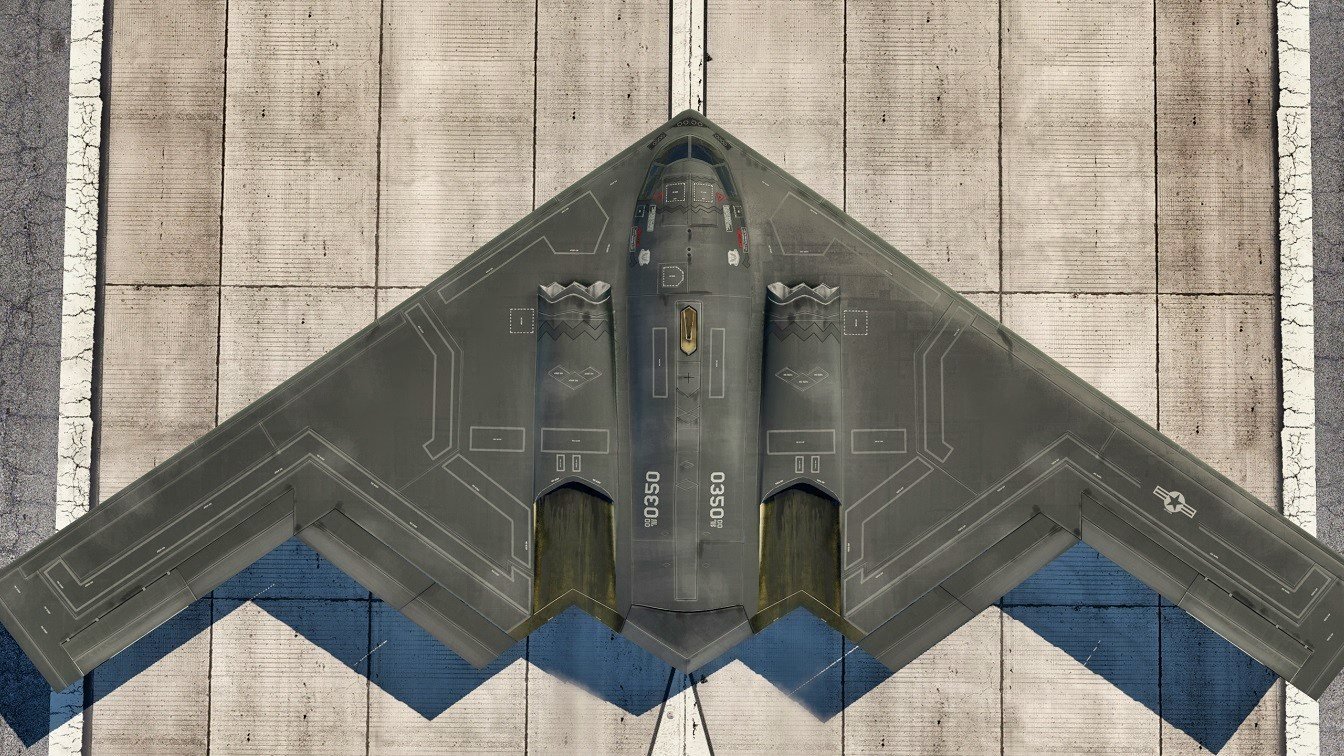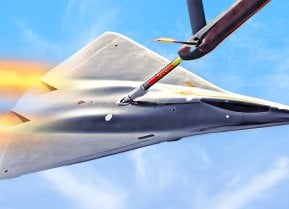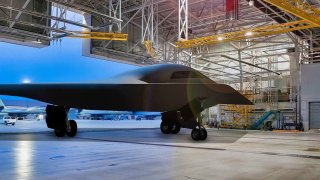'Small as Insect': B-21 Raider Bomber Could Soon Break All the Rules
Designed to replace aging B-1 Lancer and B-2 Spirit bombers, the B-21 Raider can deliver both conventional and nuclear munitions. It features advanced stealth capabilities, with a radar signature possibly as small as an insect.
Summary and What You Need to Know: The B-21 Raider, unveiled by Northrop Grumman in December 2022, represents a significant technological leap as the U.S. Air Force's new stealth strategic bomber.
-Designed to replace aging B-1 Lancer and B-2 Spirit bombers, the B-21 can deliver both conventional and nuclear munitions.
-It features advanced stealth capabilities, with a radar signature possibly as small as an insect.
-The Raider's design and technology, including its slender air intakes and radar-absorbent materials, make it difficult to detect, crucial for penetrating advanced air defenses in conflicts with peer adversaries like China or Russia.
B-21 Raider vs. Modern Air Defenses: The Stealth Bomber Built to Penetrate
In early December 2022, aerospace giant Northrop Grumman officially unveiled the B-21 Raider – the first new strategic bomber to be revealed to the public in a generation and the first since the Northrop Grumman B-2 Spirit made its public debut back in November 1988.
While similar in appearance to the B-2, the Raider is actually a generational leap in aircraft technology and development. The Raider was developed to be the multifunctional backbone of the modernized bomber fleet, gradually replacing the aging Rockwell B-1 Lancer and B-2 Spirit bombers now in service. A dual-capable penetrating strike stealth aircraft, the B-21 will be capable of delivering both conventional and nuclear munitions.
The long-range bomber – named for the 80 men who took part in the World War II "Doolittle Raid" on Tokyo in the spring of 1942 – was developed using the aerospace firm's pioneering digital engineering practices and advanced manufacturing techniques together.
The bomber has certainly captivated aviation buffs since its public unveiling. In November of last year, it made its maiden test flight in Palmdale, CA, where the bomber is currently undergoing testing.
The United States Air Force had previously announced that advanced notice wouldn't be given as to when exactly the first flight would occur, but the Raider had been undergoing taxi tests – and there was a chance its maiden flight could have occurred unexpectedly. That happened with the General Dynamics F-16 Fighting Falcon nearly 50 years ago when it became airborne during a high-speed taxi test, a critical step toward an aircraft’s first flight.
Though the service also didn’t publicize the event, about three dozen aviation enthusiasts and others gathered around Plant 42 and witnessed the flying wing-styled bomber take to the skies.
"The B-21 Raider is in flight testing," Air Force spokeswoman Ann Stefanek confirmed via a statement. "Flight testing is a critical step in the test campaign managed by the Air Force Test Center and 412th Test Wings B-21 Combined Test Force."
The Importance of the Stealth in the B-21 Raider
As noted, the B-21 features a similar "flying wing" design to the B-2 Spirit, yet as the Hudson Institute noted in a paper months back, "The Raider embodies decades of advances in stealth technologies, which are expected to have far outpaced advances in defensive systems. This is essential to winning a war with China. Many of the PRC's high-priority targets are deep inside Chinese territory and protected by advanced air defenses."
The authors of the paper further emphasized that the B‑21 Raider's stealth would deny even peer adversaries like China or Russia the critical information they need to neutralize the bomber, while the pilots of the advanced strategic bomber would also be able to adapt and change targets during a mission.
That could provide the B‑21 and its crews an advantage against time-sensitive and mobile targets.
"The B‑21 can deliver large payloads accurately and in a timely manner to gain the initiative and halt an aggressive campaign against US troops or allies," the authors added. "The B‑21 provides flexibility, both mission flexibility (it can be equipped with a variety of payloads) and operational flexibility (it can be operated from a range of bases and locations)."
Yet, the stealth does not mean that the B-21 would have the same similar operating cost as the famously pricey B‑2 Spirit. A key factor is that the United States Air Force operates only 21 B‑2s but intends to procure more than 100 of the cheaper B‑21s while increasing the size of the B‑21 fleet beyond the floor of 100 would drive down the O&S costs per plane.
B-21: Stealth Signature as Small as an Insect?
Since the aircraft's unveiling in late 20222, numerous reports have claimed that the B-21 Raider could have a radar signature as small as an "insect."

The flying wing shape, along with its composite materials, is very good at absorbing radar, but as Air & Space Forces magazine reported last year, "[P]erhaps the most striking features of the B-21 are its slender, barely-there air intakes. Unlike the higher-rise, scalloped intakes on the B-2, the B-21's are almost organically a part of its wing root. That's good for stealth—radar loves abrupt angles and big cavities—but the intakes are so thin and shallow, they seem hardly big enough to swallow enough air to feed the B-21's engines."
Yet, the inlet area can accept the required mass flow of air, which enables the engines to work fine. Likewise, while engine inlets appear big on radar, having them on top of the aircraft could further make the inlets invisible to ground radar.
The B-21 is also expected to have a high flight ceiling, which could further make it difficult for radar to pick up the inlets.
Moreover, Northrop Grumman has continuously improved on its radar absorbent material coating – which is expected to be more resilient than the coating on the B-2 Spirit. That could allow quicker turn-around between sorties while reducing the radar signature.
Whether the Raider actually is as small as an insect on radar isn't a known fact, the B-21 will likely be an aircraft that is truly difficult to track.
Author Experience and Expertise: Peter Suciu
Peter Suciu is a Michigan-based writer. He has contributed to more than four dozen magazines, newspapers, and websites with over 3,200 published pieces over a twenty-year career in journalism. He regularly writes about military hardware, firearms history, cybersecurity, politics, and international affairs. Peter is also a Contributing Writer for Forbes and Clearance Jobs. You can follow him on Twitter: @PeterSuciu.
All images are Creative Commons and/or Shutterstock.


